As part of the University of Missouri’s NextGen Precision Health Initiative, the Ellis Fischel Cancer Center (EFCC) is developing novel approaches for the diagnosis and treatment of cancer. To develop a robust and well-trained cancer research workforce, the Ellis Fischel Cancer Center has developed an experiential Summer Undergraduate Research Fellowship (SURF) program that provides undergraduate students with an immersive 9-week training program in cancer research and treatments. The EFCC-SURF program uniquely integrates emerging technologies and interdisciplinary approaches into its curriculum. Students are exposed to advanced techniques such as genomics, bioinformatics, and personalized medicine, which are at the forefront of cancer research. This exposure not only enhances their technical skills but also prepares them to engage with the rapidly evolving landscape of oncology research.
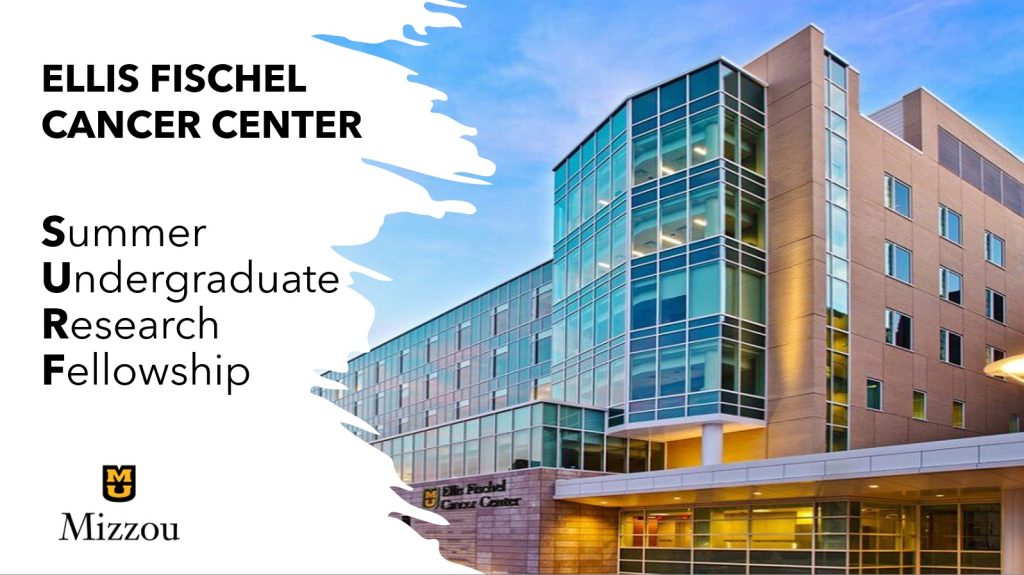
IMPACT The EFCC-SURF program offers an immersive research environment where students work on projects with real-world implications. Rather than engaging in isolated experiments, students contribute to ongoing research that has the potential to influence cancer treatment and prevention strategies. This approach fosters a deeper sense of purpose and engagement, as students see the direct impact of their work on patient outcomes and public health. In addition to technical research skills, the EFCC-SURF program places a strong emphasis on the development of soft skills such as communication, teamwork, and ethical decision-making. The program includes workshops on scientific communication, grant writing, and ethical considerations in research, which are critical for success in any scientific career. This holistic approach ensures that fellows become not only skilled researchers but also effective communicators and ethical leaders. The program incorporates a longitudinal tracking system that follows fellows’ academic and professional journeys beyond the fellowship.
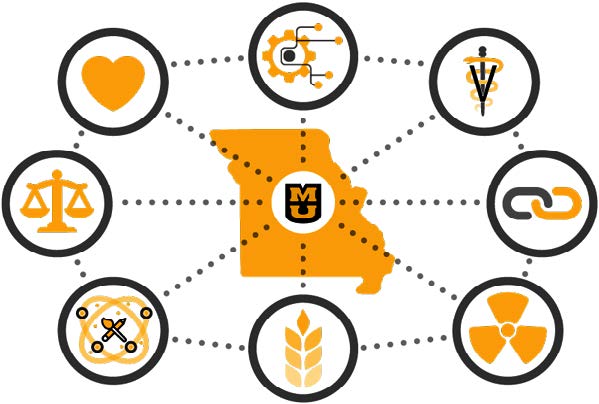
Students in the EFCC Summer Undergraduate Research Fellowship (SURF) program will participate in a fully loaded and exciting series of events including professional research development seminars, professional portrait photo, networking receptions, immersive experiences, and have an optional clinical shadowing opportunity.
Research Professional Development Seminars*
Topics include
1.) How to Critically Assess a Research Paper
2.) Presenting Your Research to the Field
3.) Responsible Conduct of Research
4.) Advice on Considering Research as Part of Your Career
5.) Research Design and Implementation
6.) Being an Effective Mentee
7.) Integrating Research and Clinical into Practice.
Case-based Cancer Research Small Group Discussions*
Topics include
1.) Cancer Prevention, Control, Outreach, and Engagement
2.) Immunomodulation and Regenerative Medicine
3.) State Cancer Registry and Data Informed Research
4.) Comparative Oncology and Translational Medicine
5.) Clinical Impact of Targeted and Immune Therapies
6.) Theranostics and Molecular Imaging.
*The subject matter includes Responsible Conduct of Research (RCR) key topics as defined by the National Institutes of Health (NIH): Conflict of Interest (COI), Human Subjects Research, Animal Welfare, Data Management, Research Misconduct, Publication Practices, Mentor/Trainee Responsibilities, Collaborative Science, Peer Review, and Social Responsibility of Researchers. The duration of RCR instruction consists of a minimum of eight contact hours distributed over the course of the summer program. This structure allows for a deep and thorough exploration of each topic while providing students time to reflect and integrate those principles learned into practice. Sessions are constructed for regular and ongoing reinforcement of the importance of RCR in daily research activities.
STEM-based Educational Tours
Scientifically based tours include
1.) The Roy Blunt NextGen Precision Health Building which houses world-class and federally sponsored investigators, labs and state of the art machines tackling cancer head on.
2.) The University of Missouri Veterinary Health Center is home to our comparative oncology researchers working with companion animal patients coping with naturally occurring tumors, GMP facilities, and comparative oncology clinical trials.
3.) The University of Missouri’s MU Health Care, our academic clinical campus, exposes the fellows to careers in radiation oncology, adult medical oncology, pediatric medical oncology, urology, head and neck, breast oncology, endocrine, gastrointestinal, genitourinary, gynecologic oncology, hematologic malignancies, melanoma, neurologic oncology, sarcoma, thoracic oncology, general surgery, surgical oncology, infusion clinic, physical therapy, inpatient and outpatient pharmacies, and the 503B compounding pharmacy CGMP.
4.) The University of Missouri Research Reactor (MURR®) is the only U.S. producer of four critical radioisotopes used in the treatment of liver, thyroid, pancreatic and prostate cancers, and in imaging agents to diagnose cancers and heart disease. Fellows learn about radioisotopes/radiochemicals (GMP) and radiopharmaceuticals and deployment logistics to ensure radioisotopes are delivered quickly, around the country, due to their short half-life.
5.) The University of Missouri Molecular Imaging and Theranostics Center (MITC) is a university-wide resource for developing radiopharmaceutical-based diagnostic imaging and therapeutic agents. It is a hub of shared resources for in vivo molecular imaging in rodents, companion animals, and large animals.
The program employs an innovative mentor-mentee matching process that considers both academic and personal interests. This process is designed to create strong, lasting mentor-mentee relationships that extend beyond the program’s duration. The emphasis on long-term mentorship is innovative because it not only supports students during their research fellowship but also provides ongoing guidance as they progress in their academic and professional careers.
Weekly Meetings: Fellows are introduced to their summer Mentor via email to establish and discuss their mutual goals and expectations for the program before arriving on campus. Each subsequent week, discussions are based upon lived experiences, addressing any obstacles and successes within the research project, and a way forward for the week. Mentors work with their fellow to plan a small project that may lead to publication and conference presentation opportunities. Concluding week 9, Mentors review summer progress and next steps for the project, if publishable.
Undergraduate Research and Creative Achievements Forum: The forum provides a platform for fellows to present their research, scholarly, and creative achievements to the Mizzou community. Over a rigorous 9-week fellowship, fellows collaborate with mentors to develop scientific inquiries, formulate research methodologies, conduct investigations, and analyze results. They culminate their fellowship by writing their findings, preparing an oral presentation, and presenting their work to peers. Additionally, they create and submit a poster for presentation and engage with peers, mentors, faculty, and the public to discuss their research. It is crucial for fellows to effectively communicate their research’s significance, its potential translational applications, and its impact on the communities within our catchment area.
Professional Career Development: The program facilitates up to 16-hours of immersive experiences for students to delve into oncology careers through individualized physician shadowing in outpatient settings and observational opportunities during surgical procedures with practicing physicians. Additionally, fellows will engage in a comprehensive professional development program that includes obtaining a professional portrait photograph, crafting an undergraduate curriculum vitae (CV) and biosketch, and mastering networking fundamentals through various events. Workshops are provided on topics such as recognizing and addressing biases, fostering inclusive team development, financial well-being, conflict resolution, and mindfulness practices. The EFCC-SURF program innovatively fosters a sense of community among fellows by creating networking opportunities with professionals in the field, including alumni, faculty, and industry leaders. These connections provide students with valuable insights into career paths and help them build a professional network early in their careers. The program also encourages collaboration among fellows, which not only enhances learning but also builds a supportive peer network that can persist throughout their careers.
Students should expect to work 40 hours per week in their lab, attend mandatory weekly meetings, and join in various professional development activities.
Students will Receive
- Air Travel to/from Columbia, Missouri
- Limitations apply when traveling by personal vehicle. Based on mileage, up to $600 roundtrip to include mileage and university parking expenses.
- Subsistence of $15/hour for 40-hours worked per week; 9-week program total $5,400 USD (minus taxes). Payroll is paid on a monthly basis, at the end of each month; June $2,700 and July $2,700 (minus taxes).
- Residential Life Housing, air-conditioned dorm room/suite with wi-fi and dual or triple occupancy.
- The Mizzou TigerCard for Identification and Access:
- Purchase non-academic items/services at all Campus Dining Services locations, the Mizzou Store and Mizzou Recreation with prepaid Tiger Cash funds. (ZOU Silver Dining Plan paid by EFCC)
- Do laundry in residence halls (hall residents only – not applicable for mobile ID credentials).
- Charge books and other educational expenses at The Mizzou Store.
- Enter the MizzouRec Complex (student activity fee is paid by EFCC).
- Check out materials from all MU Libraries.
- Research related expenses; lab coat, lab supplies, poster production, books, scrubs, tuition, course fees, and software fees all paid by EFCC.
To be eligible to participate, applicants must have completed at least one year of full-time college enrollment prior to June 2024 and pursuing a major in a field related to the program to which they are applying. The EFCC SURF for Freshmen will be open for all Missouri residents, who are enrolled as Freshmen at an academic institution within the state. In addition, students must be citizens or permanent residents of the United States.
The deadline to apply is February 15, 2026. Students must complete the application form and provide an unofficial transcript (including Fall 2025 grades); letters of recommendation (two preferred); a resumé; and a personal statement indicating career plans, prior research experience, and research interests. Documents will be submitted with the online application.
Letters of recommendation may be sent directly to the Office of Undergraduate Research via e-mail to ugr@missouri.edu. Questions can be directed to the MU Office of Undergraduate Research via e-mail or phone, 573-882-5979.
Ellis Fischel Cancer Center Summer Program Faculty Mentors
Ye Duan, PhD – https://engineering.missouri.edu/faculty/ye-duan/
Interested in furthering the fields of computer graphics, computer vision, machine learning, and biomedical imaging; electrical engineering and computer science; 3D Deep learning; fully automated deep neural networks; hybrid deep convolutional neural network model.
Dmitri Kireev, PhD – https://chemistry.missouri.edu/people/kireev
Computer-aided drug design (CADD) leverages computational techniques such as virtual screening, molecular dynamics simulations, and free energy calculations to accelerate the identification of potential therapeutic compounds. By simulating molecular interactions and predicting binding affinities, these methods enhance the efficiency of drug discovery while reducing costs and time. Our research has successfully employed CADD to identify promising hit compounds for diseases such as Parkinson’s, SARS-CoV-2, and Alzheimer’s, demonstrating its power in targeting complex biological systems. This approach enables a more precise and rational design of drug candidates, facilitating the development of novel treatments for critical health challenges
Jane McElroy, PhD – https://medicine.missouri.edu/faculty/jane-mcelroy-phd
Jane McElroy, professor and epidemiologist in the Family and Community Medicine department at University of Missouri (MU). She is co-director of a newly founded rural health research center. One element of the RHRC is expanding the Missouri practice-based innovations network (MO-PIN), a clinic-based network for bidirectional engagement in research endeavors among (rural) healthcare clinics/systems and researchers. Dr. McElroy’s research focuses on cancer prevention and more recently on Colorectal Cancer Screening in partnership with FQHCs, COVID-19 and Influenza. Besides cancer and viral exposures, Dr. McElroy is invested in reducing health disparities. She has expertise in sexual and gender minority (aka LGBTQ) issues with federally funded projects and publications.
Patrick Tassone, MD – https://www.muhealth.org/doctors/patrick-tassone-md
Dr. Patrick Tassone is a head and neck surgeon who treats benign and cancerous tumors in the mouth, throat, voice box, neck and salivary glands. He is able to remove the tumor and perform reconstructive surgery on adult patients. Using his specialty training in reconstruction, Dr. Tassone can restore form and function for patients whose cancer surgeries require removal of important structures. As part of our team approach to cancer care, Dr. Tassone also offers his patients clinical trials for head and neck cancers. He’s actively involved in research and has received funding to study the metabolism of head and neck cancers to better understand cancer cell growth and how doctors might be able to stop or slow cancer growth.
Bret Ulery, PhD – https://engineering.missouri.edu/faculty/bret-ulery/
Design of biomaterials for medicinal applications, specifically focusing on generating engineered solutions capable of providing the cues necessary to facilitate in situ bioactivity. Current efforts are on addressing new approaches for cancer therapy, vaccine delivery, autoimmune treatment, and orthopedic tissue repair.
Timothy Wolf, PhD – https://healthprofessions.missouri.edu/personnel/timothy-wolf/
Concepts of Neuroscience, application of evidence based practice, and functional cognition. Key interests: nucleotides; Autoimmune Diseases; Nucleotide receptors; Autoimmune exocrine diseases; Inflammation in signaling. stroke; mcst; rehabilitation; mild; efpt; participation; pqrs; performance; nihtb; cognitive; individuals; ctpa; care; ot; participants; post; battery; op; self; occupational; activities; validity; executive; work; activity.
Dong Xu, PhD – https://engineering.missouri.edu/faculty/dong-xu/
Bioinformatics, machine learning, protein structure prediction, post-translational modification prediction, high-throughput biological data analyses, silico studies of plants, microbes and cancers, and mobile App development for healthcare.
Iris Zachary, PhD – https://medicine.missouri.edu/faculty/iris-zachary-phd
- Cancer Registry Epidemiology and Disparities in Cancer Outcomes. This project will examine epidemiological data from the Missouri Cancer Registry to study the incidence, mortality, and trends of various cancers in Missouri. The student will analyze data related to multiple cancer types, focusing on identifying health disparities based on geographic location, socioeconomic status, race, and ethnicity. Using statistical software, the student will conduct data analysis and create visual representations of cancer trends over time. This project offers hands-on experience in cancer epidemiology and data analysis, contributing to a deeper understanding of the social and demographic factors that influence cancer outcomes in the population.
- Data Modernization in Cancer Surveillance. In this project, the student will assist in the modernization efforts of cancer surveillance systems by integrating new data sources, such as genetic and pathology data, into the Missouri Cancer Registry. The student will work closely with faculty and public health informatics professionals to enhance data collection processes and streamline data integration methods. Through this project, they will gain experience in data management, informatics tools, and contribute to improving the timeliness and accuracy of cancer reporting. The project will provide an introduction to data modernization in cancer surveillance, positioning the student at the forefront of public health innovation.
Jeffrey Bryan, DVM, PhD, MS – https://muidsi.missouri.edu/person/jeffrey-n-bryan/
Comparative examination of cancers in companion animals to better understand cancers in all species; targeted imaging and therapy and epigenetics of cancer.
Bo Lu, MD, PhD, DVM – https://precisionhealth.missouri.edu/people/bo-lu-phd
Develop more effective and less toxic cancer therapy through mechanistic studies in mouse models and translational research using clinical samples from cancer patients.
Akhil Srivastava, PhD – https://medicine.missouri.edu/faculty/akhil-srivastava-phd
Dr. Srivastava leads projects studying the molecular basis of cancer pathophysiology and developing novel anti-cancer therapeutic strategies focusing on Extracellular Vesicles (EVs) or ‘exosomes.’ The area of interest includes elucidating the function of cancer cell-derived EVs in creating a favorable ecosystem for establishing a cancer lesion site, modulating the immune system, and developing resistance to therapies. He is also interested in studying the molecular composition of EVs to decipher stringent molecular signals that can be used to develop Artificial Intelligence (AI) tools for high-precision cancer diagnosis and treatment prediction. In addition, to leverage the translational potential of EVs, Dr. Srivastava has engineered EVs as a novel biomimetic multifunctional theranostic system for the simultaneous tumor-targeted delivery of anti-cancer therapeutics and imaging.
Donald Burke-Aguero, PhD – https://bondlsc.missouri.edu/person/donald-burke-aguero/
Exploring the many roles of ribonucleic acid, or RNA; using cell biology, biochemistry, and sophisticated computational approaches to compare millions of RNA molecules, looking for the ones that can do helpful jobs.
Chiswili Yves Chabu, PhD – https://biology.missouri.edu/people/chabu
Oncogenic mutations in EGFR or RAS activate a complex network of cell-cell signaling events in the cancer microenvironment. These signals promote cancer growth, metastasis, cancer immune escape, and drug resistance. We are interested in delineating these mechanisms to identify actionable targets against EGFR/RAS cancers.
Gerhard Hildebrandt, MD – https://www.muhealth.org/doctors/gerhard-hildebrandt-md
Cancer Center Director; BMT, Blood Disorders; Hildebrandt Lab Research: Dr. Hildebrandt’s research interest includes acute and chronic lung injury after allogeneic hematopoietic cell transplantation. Graft-versus-host-disease (GVHD) is a condition that is common following an allogeneic stem cell transplant. The donor stem cells used in an allogeneic stem cell transplant can recognize a patient’s healthy tissues as foreign and mount an attack against them; this results in GVHD. There are two types of GVHD: acute GVHD and chronic GVHD. GVHD can be life-threatening and can greatly reduce the quality of life of a survivor. Treatment for GVHD typically includes steroids. However, once a patient stops responding to steroids (steroid-refractory), effective treatment options are limited. B cells and T cells are the immune cell associated with GVHD. We are involved in finding a promising treatment for patients with GVHD and testing the safety of various drugs to find the highest dose that can be given safely to prevent and treat GVHD.
We are extending our study to study lung complications during GVHD. Lung injury after allogeneic (allo) hematopoietic cell transplantation (HCT) significantly contributes to morbidity and mortality after transplant. Our ongoing microbiome study focuses on analyzing the differential bacterial community relying on 16S rRNA gene sequencing (Mi sequencing) on the lung samples. This requires high performance computer to utilize computational methods data analysis.
Syamantak Khan, PhD – https://medicine.missouri.edu/faculty/syamantak-khan-phd
Organoid-driven Precision Oncology. Patient-derived tumor organoids are miniaturized models of patient tumors that closely recapitulate the tumor heterogeneity, cancer mutations, genetic-epigenetic signatures and tumor microenvironment of the original tumor, including the immune components. The lab develops healthy and cancerous organoids obtained from patient biopsies and surgical samples and uses them to predict the therapeutic responses of patients. These organoids can be expanded in the laboratory, biobanked and genetically modified to create more complex disease models. In the longer term, the lab aims to advance organoid technology by innovating next-generation tools of standardization, automation, and large-scale drug testing. One of these projects, funded by NIH, seeks to identify the epigenetic basis of therapeutic resistance in head and neck cancer. The lab is studying DNA-methylation patterns in various head and neck cancer subtypes to identify radiation and cisplatin resistance biomarkers.
Jussuf Kaifi, MD, PhD – https://www.muhealth.org/doctors/jussuf-kaifi-md
Identifying the molecular mechanisms of micro metastatic tumor spread by which malignant cells detach from the primary tumor undetected by standard imaging and eventually cause metastases in distant organs as the major final cause of cancer-associated deaths. Mechanisms in which tumor cells circulate in the blood and settle in other organs to grow to solid tumors will allow for the identification of pharmacological targets that can be exploited to destroy malignant disease and increase cure rates of cancer patients.
Xunlei Kang, MD, PhD – https://medicine.missouri.edu/faculty/xunlei-kang-md-phd
Hematopoietic stem cell study; Leukemia stem cell study; SUMO modification study; Fasting selectively blocks development of acute lymphoblastic leukemia via leptin-receptor upregulation; Inhibitory leukocyte immunoglobulin-like receptors: immune checkpoint proteins and tumor sustaining factors; A novel ITIM receptor-mediated signaling pathway is essential for acute myeloid leukemia development.
Margaret Lange-Osborn, PhD – https://scholars.umsystem.edu/scholar/stack/13556/MARGARET-LANGE-OSBORN?instId=7&unitId=1067&unitType=2
Understanding the mechanisms underlying recognition of nucleic acids by pattern recognition receptors and how these recognition events shape immune responses to inform design and development of novel immunomodulators for precise, tunable regulation of cellular signaling pathways across diverse cancer types.
Michael Petris, PhD – https://medicine.missouri.edu/faculty/michael-petris-phd
Pathways of copper acquisition and handling to promote tumor survival and metastasis. Copper; Cancer; Infectious disease; Nutrition; Metals. Molecular biology
Cancer biology; Nutrition; Cell biology; Biochemistry; Metabolism; Animal models of disease.
Haval Shirwan, PhD – https://medicine.missouri.edu/faculty/haval-shirwan-phd
Immune engineering as a platform to modulate immune responses in health and disease. Development of novel immune ligands (biologics) and their targeted delivery using various platforms (biomaterials, live vectors) for immunomodulation with focus on cancer immunotherapy and immunoprevention, vaccinology, autoimmunity (type 1 diabetes as primary focus) and transplantation.
Akhil Srivastava, PhD – https://medicine.missouri.edu/faculty/akhil-srivastava-phd
Dr. Srivastava leads projects studying the molecular basis of cancer pathophysiology and developing novel anti-cancer therapeutic strategies focusing on Extracellular Vesicles (EVs) or ‘exosomes.’ The area of interest includes elucidating the function of cancer cell-derived EVs in creating a favorable ecosystem for establishing a cancer lesion site, modulating the immune system, and developing resistance to therapies. He is also interested in studying the molecular composition of EVs to decipher stringent molecular signals that can be used to develop Artificial Intelligence (AI) tools for high-precision cancer diagnosis and treatment prediction. In addition, to leverage the translational potential of EVs, Dr. Srivastava has engineered EVs as a novel biomimetic multifunctional theranostic system for the simultaneous tumor-targeted delivery of anti-cancer therapeutics and imaging.
Jack Tanner, PhD – https://cafnr.missouri.edu/person/jack-tanner/
Structural biology; development of proline analogues as cancer therapeutics.
Urology Cancer Research Lab (Fang, Yujiang/Wakefield, Mark)
https://medicine.missouri.edu/faculty/yujiang-fang-md-phd
https://www.muhealth.org/doctors/mark-wakefield-md
- Cancer Immunotherapy: Cytokine-based cancer immunotherapy has been a new hot spot for cancer treatment for years. Recently several new projects have been developed in urology lab about the direct effects of cytokines (such as IL-38, IL-39 and IL-41) on tumor proliferation, apoptosis, senescence and metastasis in many cancers (prostate cancer, bladder cancer, pancreatic cancer, colorectal cancer, cervical cancer, ovarian cancer, lung cancer, brain tumor, melanoma). The underlying molecular mechanisms of the effects of cytokines on tumor cells will be further investigated.
- Cancer Radiation Sensitizer: Some cancers are among the more radioresistant malignant tumors. A safe and effective radiosensitizing agent is needed to allow a decrease in the radiation dosage and side-effects associated with radiation. In recent years, fruit and vegetable extracts such as extracts from blueberry, raspberry, cranberry, kiwi, cilantro, asparagus, celery have been studied for use as cancer radiosensitizers in some cancers such as prostate cancer, cervical cancer and brain tumor.
- SARS-CoV-2 spike protein and cancer. In 2022, we reported that ARS-CoV-2 spike protein inhibits growth of prostate cancer by a couple of mechanisms. This may suggest that the introduction of SARS-CoV-2 spike protein into the body via COVID-19 vaccination may have the potential to inhibit prostate cancer in patients. This potential beneficial association between COVID-19 vaccines and prostate cancer inhibition will require more extensive studies before any conclusions can be drawn about any in vivo effects in a human.
Gary Weisman, PhD – https://cafnr.missouri.edu/person/gary-weisman/
Although best known as the “energy currency” of the cell, ATP and other nucleotides also serve as extracellular signaling molecules. Extracellular nucleotides are released from cells under conditions of cellular or tissue stress, disease, and infection, whereupon they activate cell surface P2X and P2Y nucleotide receptors. The Weisman lab studies the relationship between these P2 nucleotide receptors, which are present on the surface of most cells, and inflammatory diseases such as cancer and autoimmune disease. While P2 receptors control a range of physiological functions including platelet aggregation, muscle contraction, neurotransmission, insulin secretion, wound healing, and cell growth, they have also been implicated in cancer pathogenesis where they enhance MAP kinase and growth factor receptor activation and modulate host anti-tumor responses. Among the most extensively studied P2 receptors is the G protein-coupled P2Y2 receptor (P2Y2R) that is activated equipotently by extracellular ATP or UTP. We will be examining P2Y2R function in several cancer cell types, including blood cancers (leukemia and lymphoma) and oral cancers, and will be characterizing the therapeutic potential of novel P2Y2 receptor antagonists.
Esma Yolcu, PhD – https://medicine.missouri.edu/faculty/esma-yolcu-phd
Utilization of hematopoietic stem cells for treating bone marrow failure syndrome and hematological malignancies. Development of cell-based therapies for treatment of autoimmune diseases and allograft rejection.
Theranostics and Cancer Imaging
Carolyn Anderson, PhD – https://chemistry.missouri.edu/people/anderson
The development of novel radiometal tracers, molecular imaging and theranostic agents targeting various types of cancer, with a focus on metastatic melanoma, from chemistry to first-in-human studies.
Gregory Biedermann, MD – https://www.muhealth.org/doctors/gregory-biedermann-md
Dr. Gregory Biedermann is a radiation oncologist who has been at Ellis Fischel Cancer Center for the past three years. He sees adult and pediatric patients diagnosed with cancer. His areas of interest are head and neck cancers, brain cancers and stereotactic radiation. Dr. Biedermann performs the majority of brachytherapy, also called internal radiation therapy, that is available at Ellis Fischel.
W. Barry Edwards, PhD – https://cafnr.missouri.edu/person/barry-edwards/
Developing radiotracers for diagnostic imaging and targeted radiotherapy of cancer. PHI Focus Area: Radiology. Research interests include development optical probes for optical imaging of enzyme activity and the development of phage displayed and combinatorial peptide libraries for discovery of ligands for molecular imaging.
Bo Lu, MD, PhD, DVM – https://precisionhealth.missouri.edu/people/bo-lu-phd
Develop more effective and less toxic cancer therapy through mechanistic studies in mouse models and translational research using clinical samples from cancer patients.
Charles Jeffrey Smith, PhD – https://medicine.missouri.edu/faculty/charles-jeff-smith-phd
Radiopharmaceutical sciences design, focusing on development of novel theranotic probes for prostate and breast cancer detection and therapy. 1. Main group chemistry including inorganic and organometallic polymers; 2) Design and development of polydentate, water-soluble, complexing agents for technetium and rhenium radiometals; 3. Radiopharmaceutical design and development including isotope processing and purification, radiotracer design based upon small molecule ligand frameworks and large molecule cell-targeting agents, and in vitro and in vivo diagnostic/therapeutic probe development investigations. 4) Monovalent and bivalent analogs and nanoparticles of gastrin releasing peptide (GRP), prostate specific membrane antigen (PSMA), and RGD (arginine-glycine-glutamic acid) radiolabeled with In-111, Y-86/90, Lu-177, Au-198/199, Ga-67/68, and Cu-64.
Design of biomaterials for medicinal applications, specifically focusing on generating engineered solutions capable of providing the cues necessary to facilitate in situ bioactivity. Current efforts are on addressing new approaches for cancer therapy, vaccine delivery, autoimmune treatment, and orthopedic tissue repair.
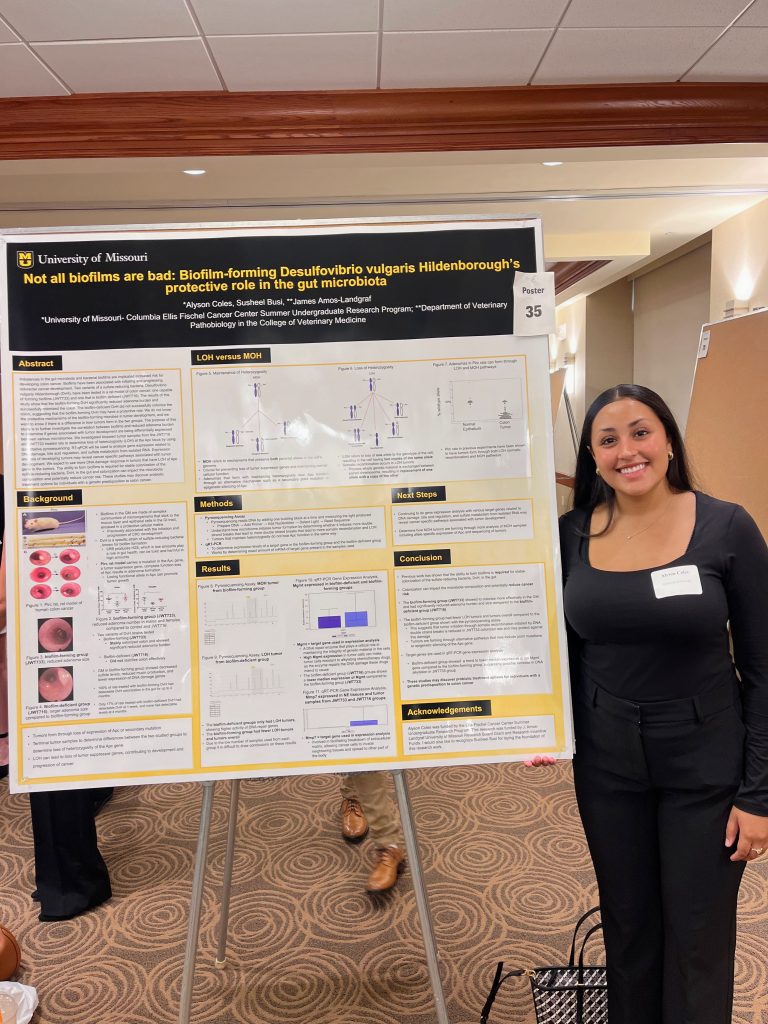
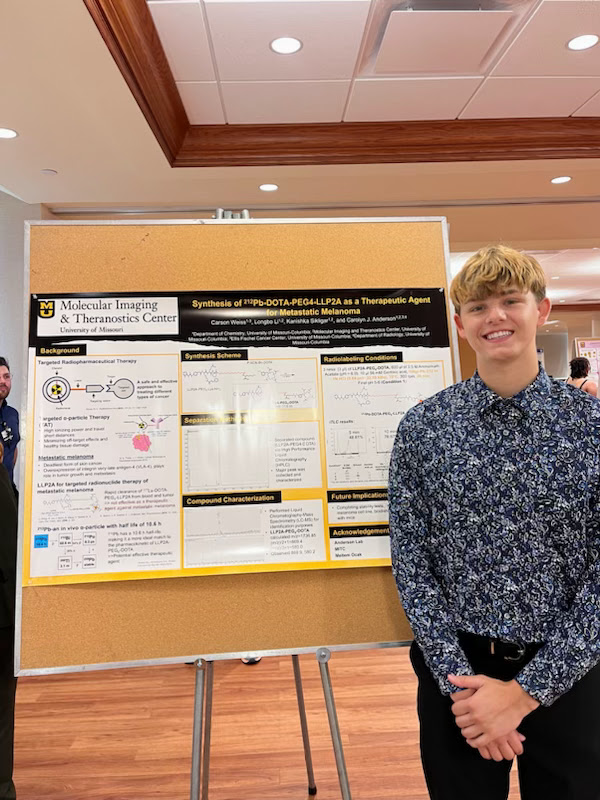
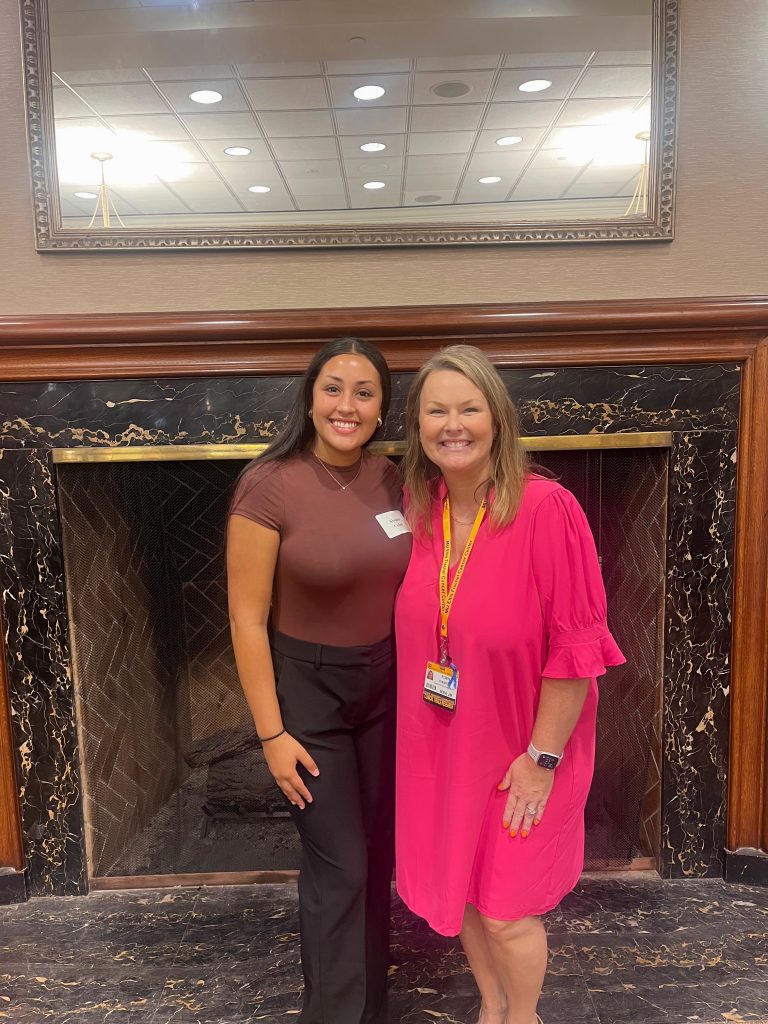
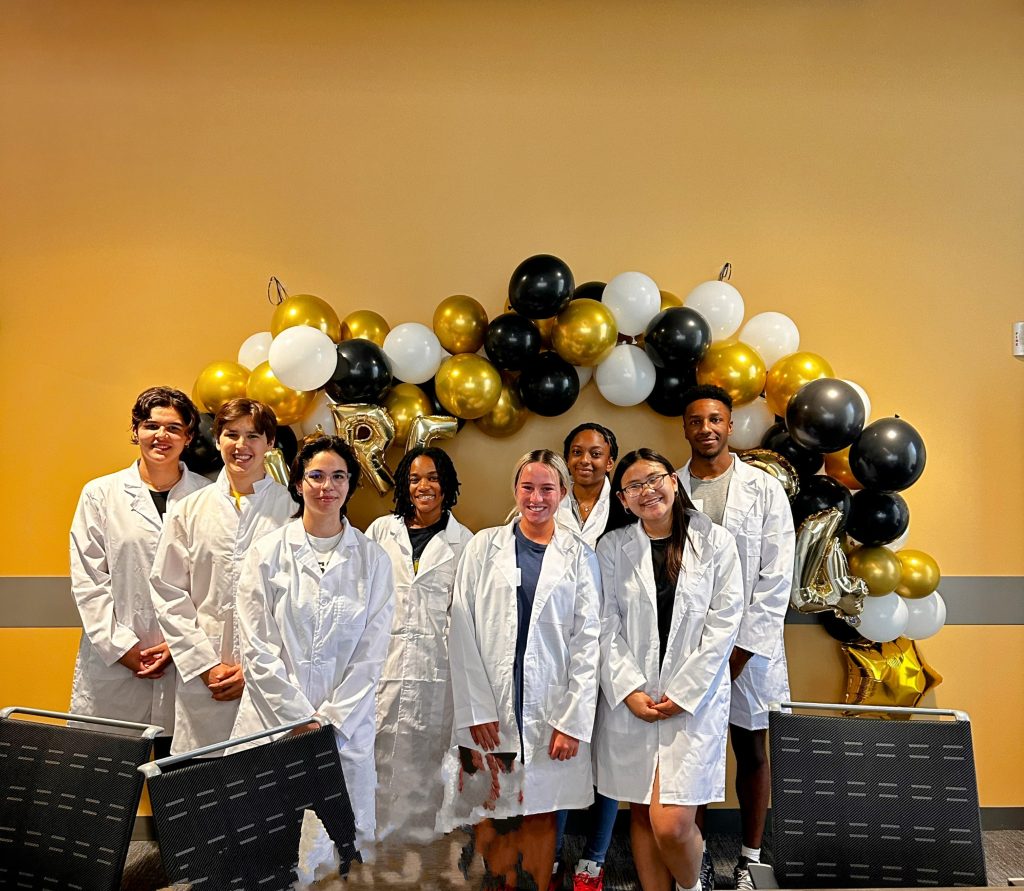
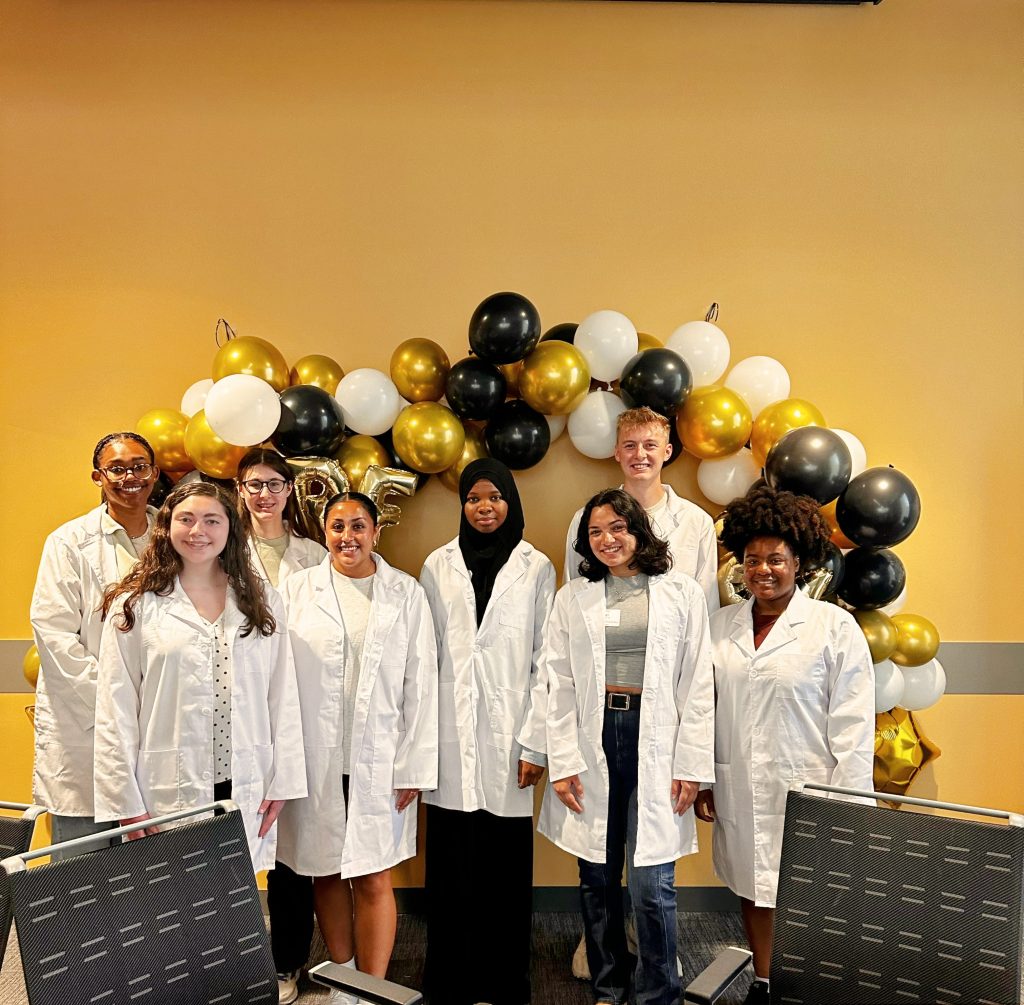
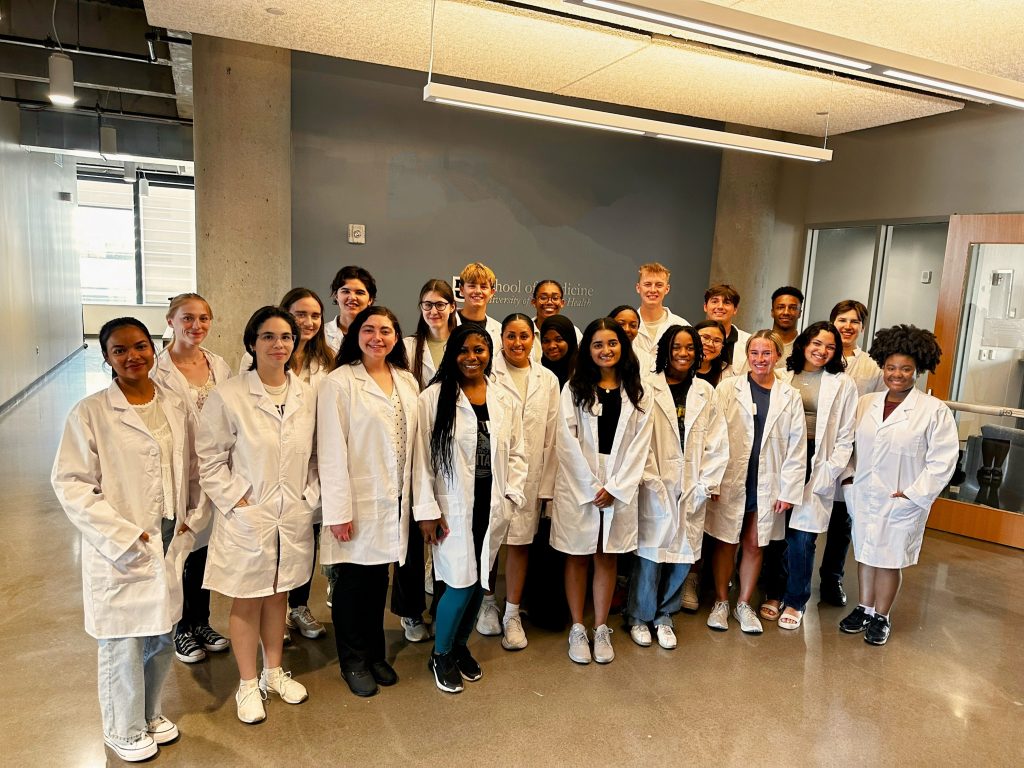
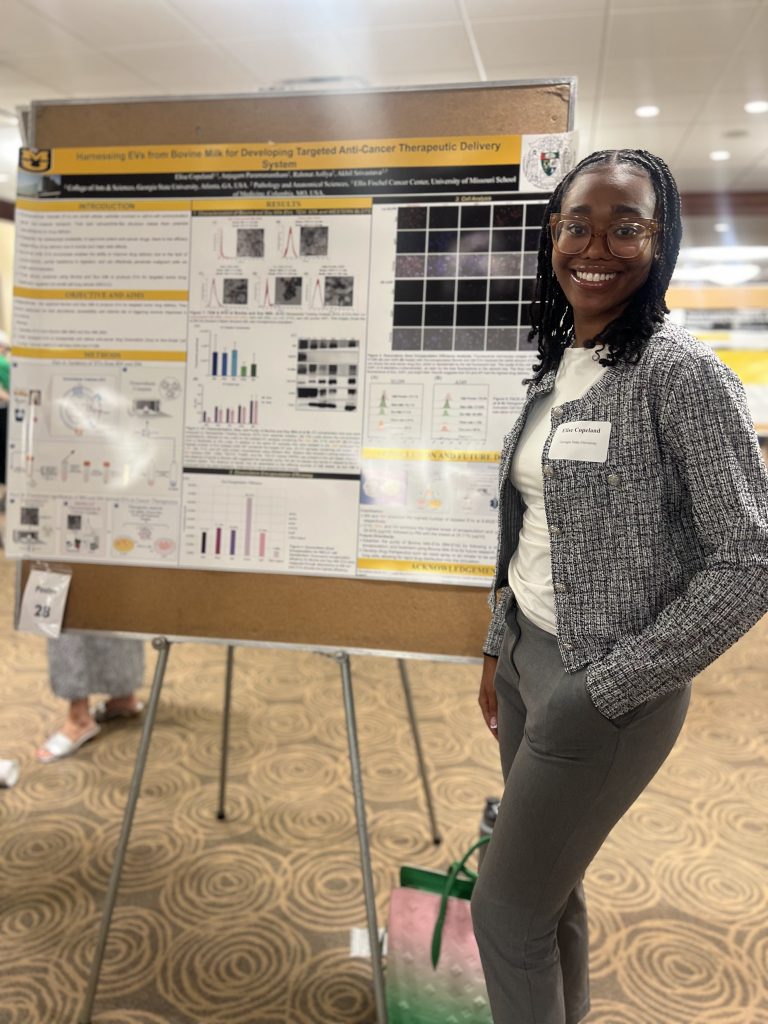
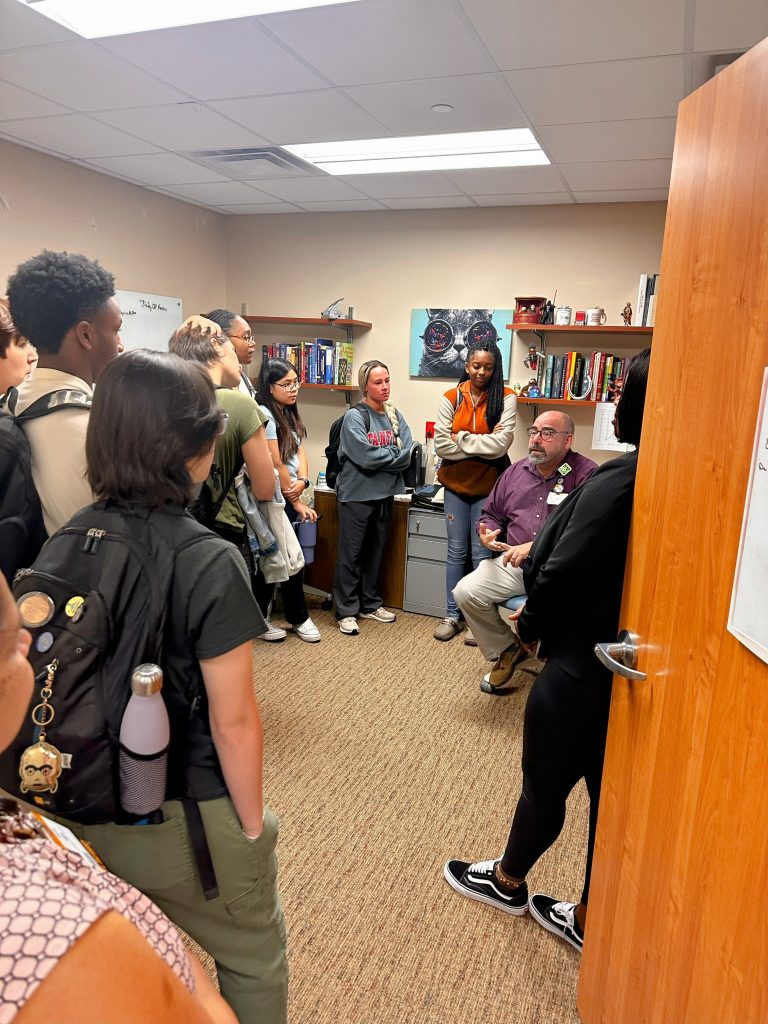
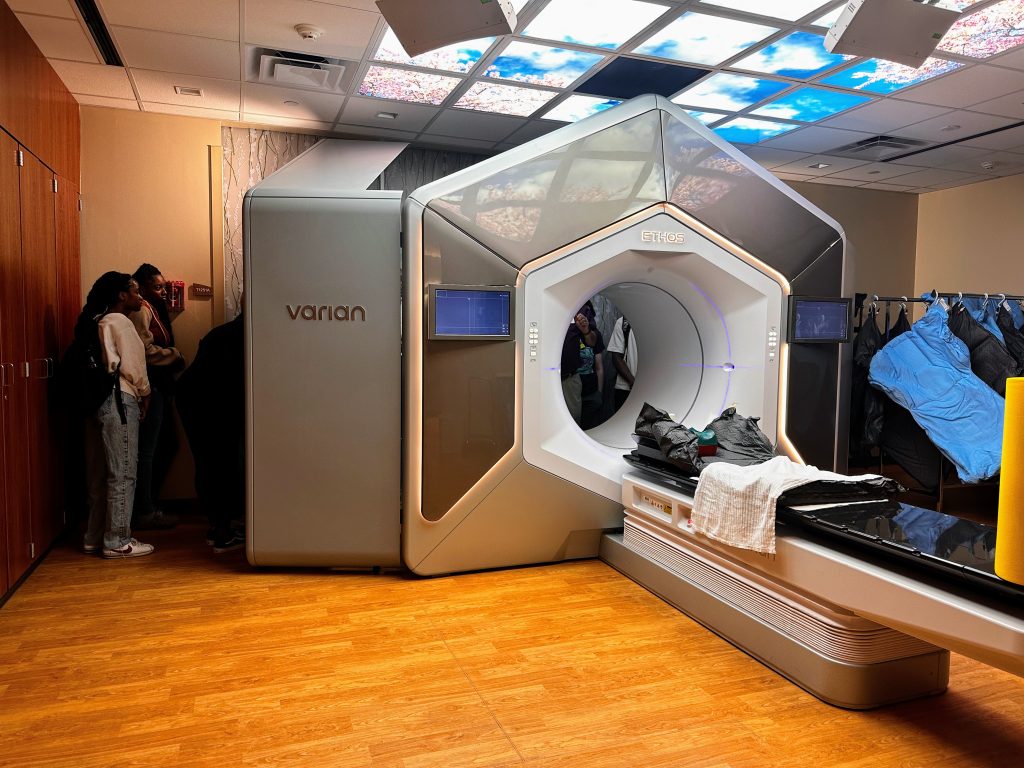
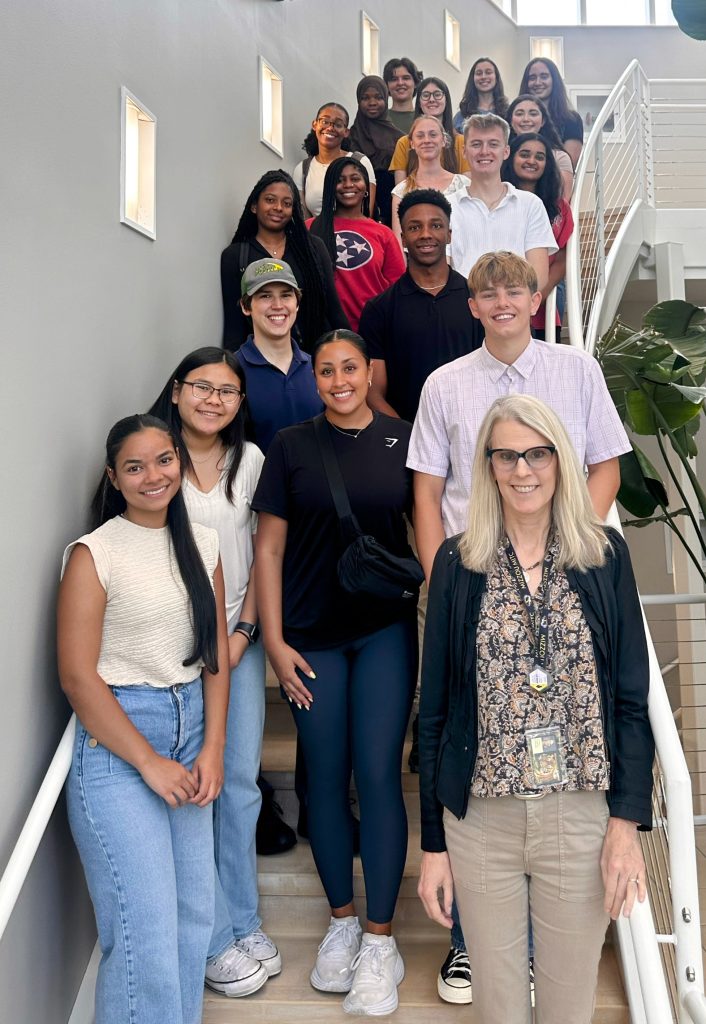
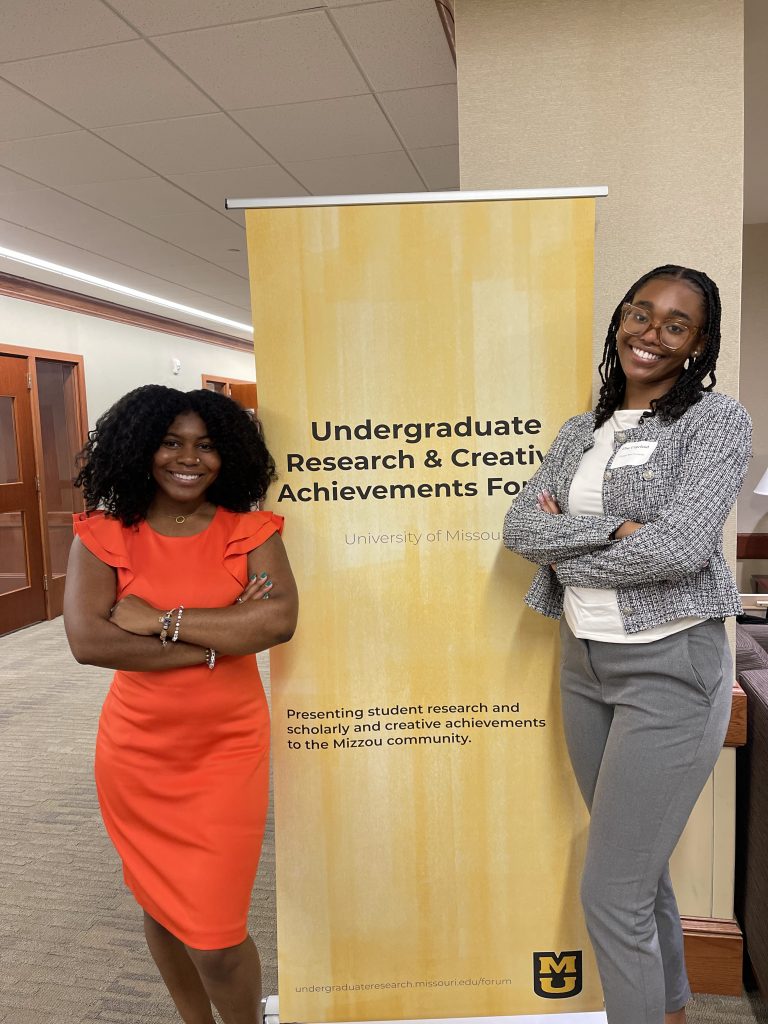
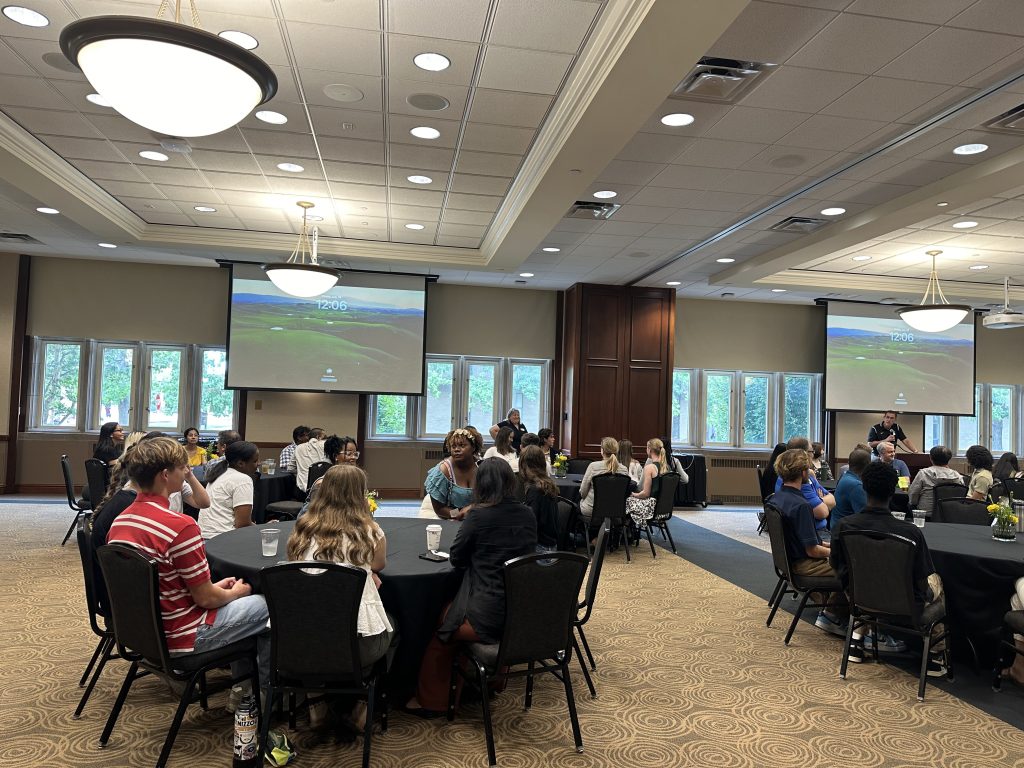
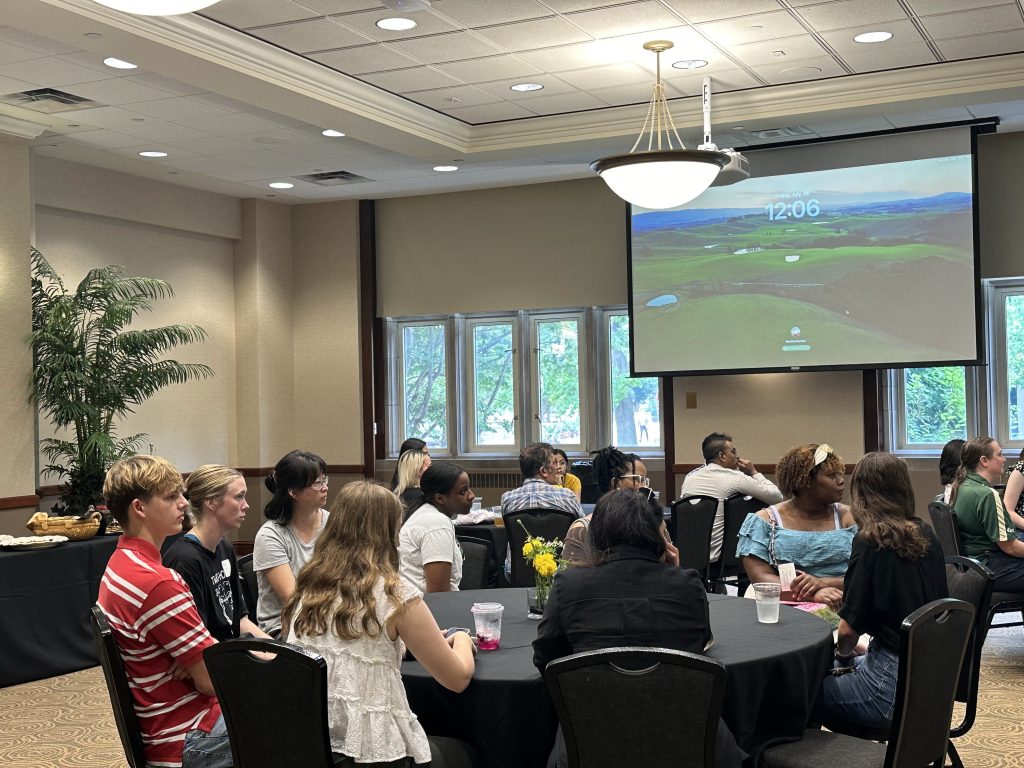
Additional questions may be directed to the Office of Undergraduate Research, ugr@missouri.edu or (573) 882-5979
If you would like to preview the application, click below.
